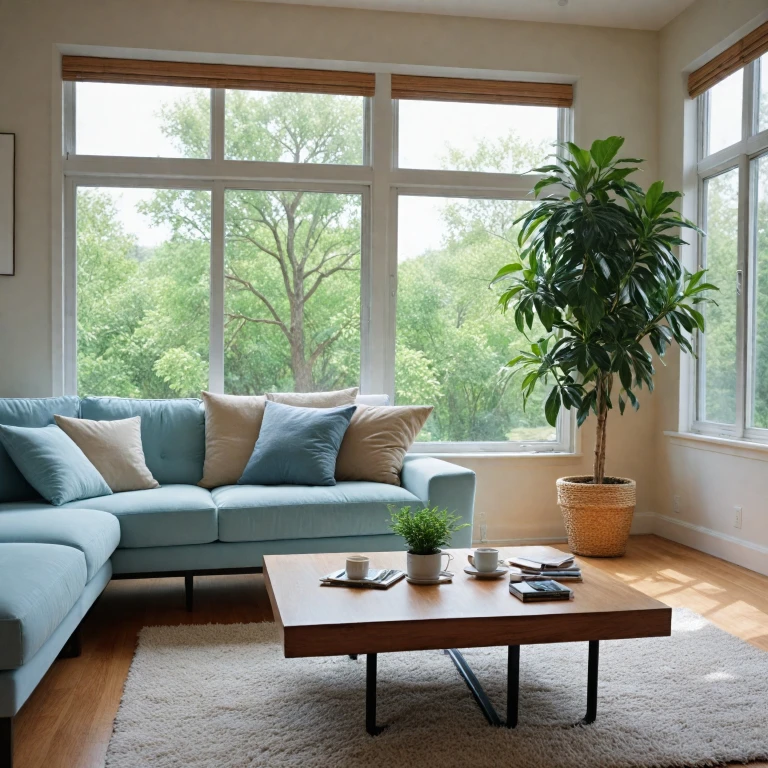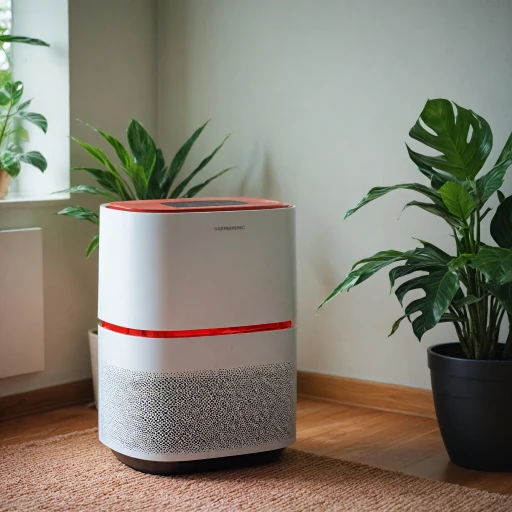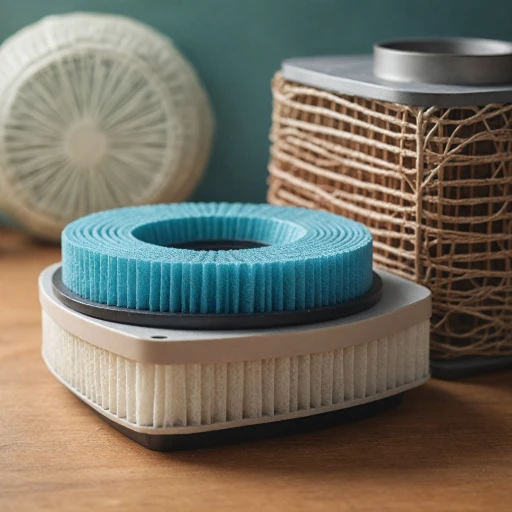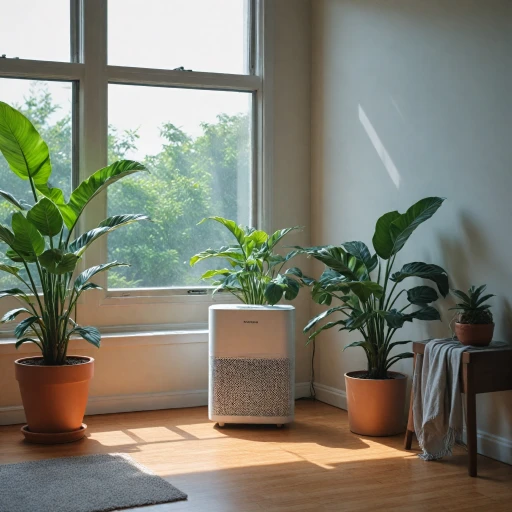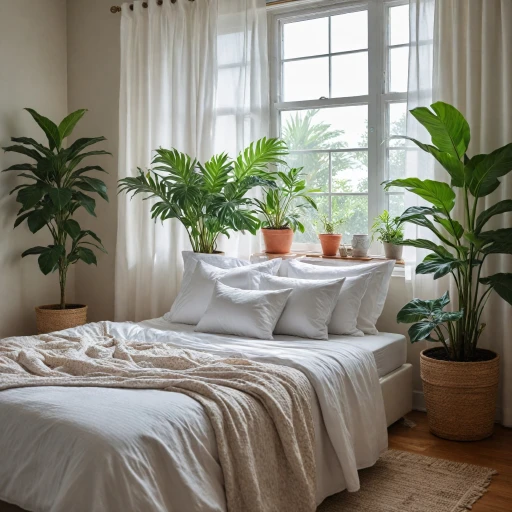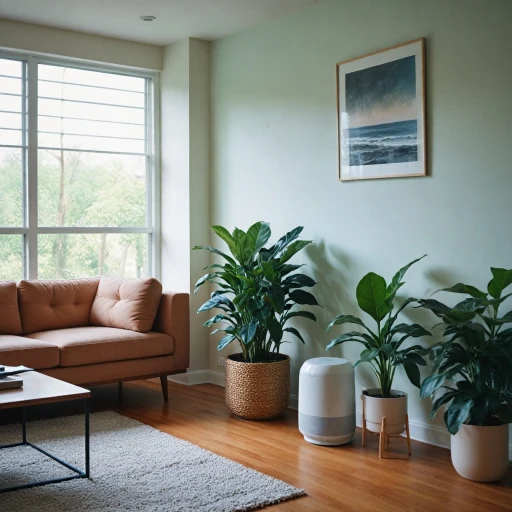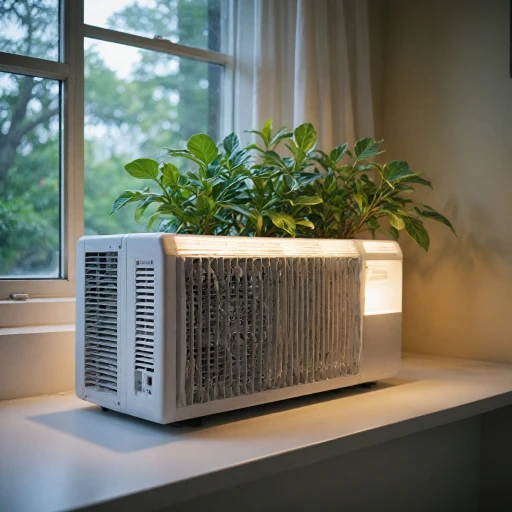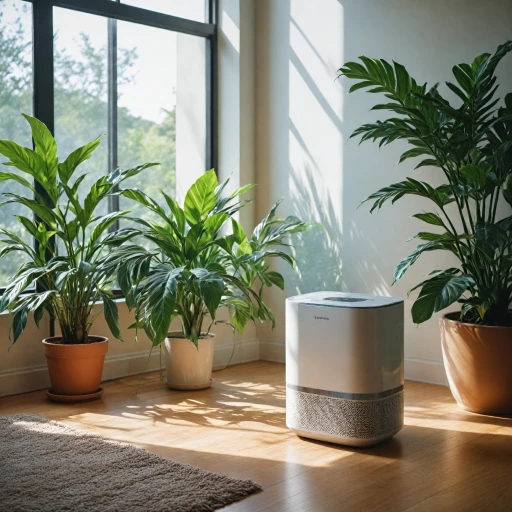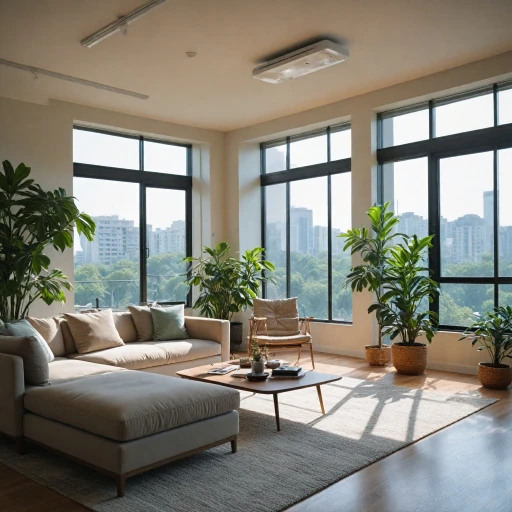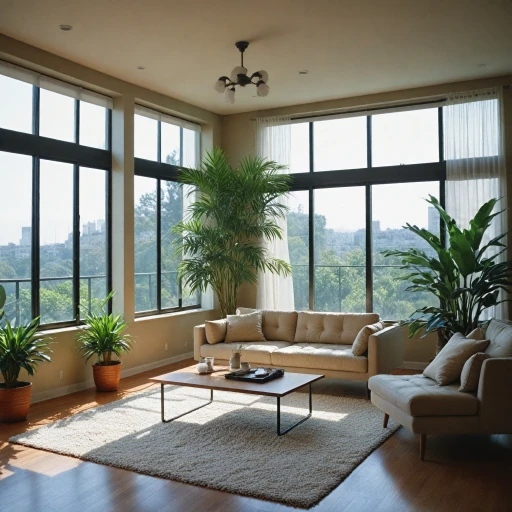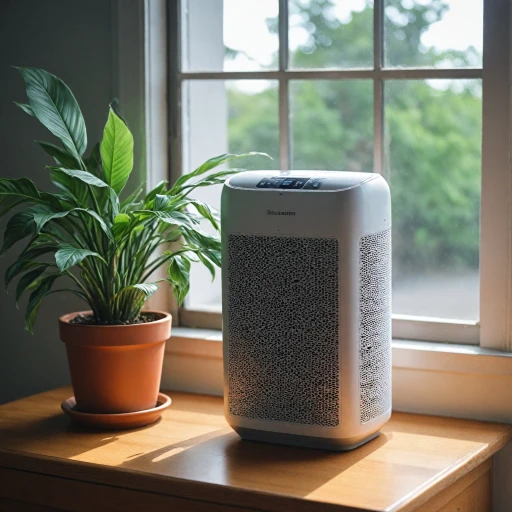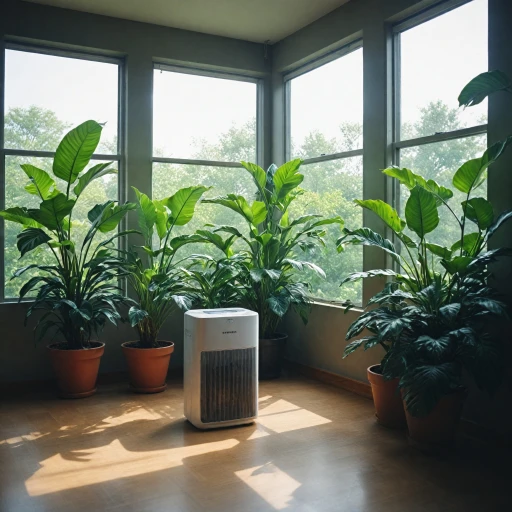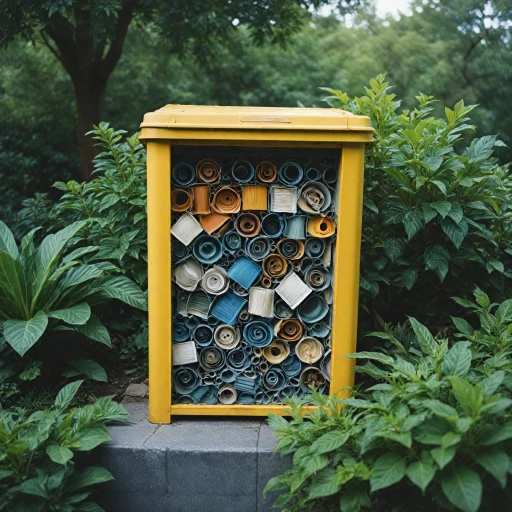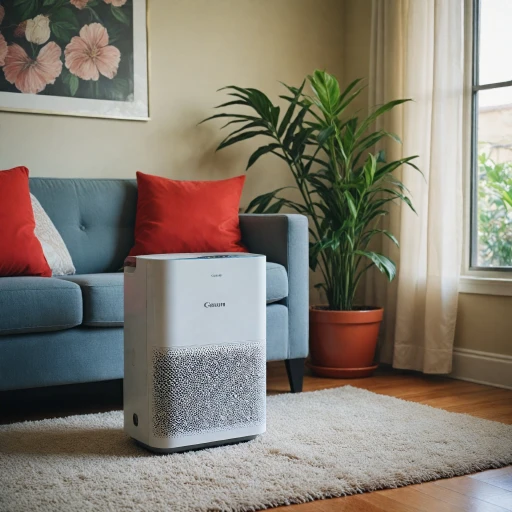
Understanding Air Purifier Functionality
How Air Purifiers Work to Enhance Indoor Air Quality
Air purifiers have gained increasing popularity as more individuals become aware of the importance of maintaining high-quality indoor air. These devices are designed to remove contaminants from the air, providing a cleaner and healthier living environment. Understanding how air purifiers function can help you make informed decisions about their usage in your home. Air purifiers typically work by drawing air through a series of filters, including HEPA filters and activated carbon filters. A HEPA filter, or High Efficiency Particulate Air filter, is particularly effective at capturing particles as small as 0.3 microns. This makes it an essential component for trapping common indoor pollutants such as dust, pollen, and pet dander. On the other hand, activated carbon filters excel at absorbing and neutralizing odors, smoke, and harmful gases. The operation of an air purifier involves a fan system that facilitates continuous air circulation. As the air passes through the filters, pollutants are trapped, ensuring that the air released back into the room is cleaner and fresher. The effectiveness of the purifier depends on factors like the type and quality of filters used, as well as the speed at which air is cycled through the device. Regular maintenance, such as replacing filters when necessary, plays a crucial role in ensuring optimal performance. For more detailed information on the importance of timely filter replacement, you can explore the importance of replacing your air filter. Maintaining your air purifier according to manufacturer recommendations will help maximize its lifespan and efficiency. In summary, air purifiers function by filtering outdoor and indoor pollutants, significantly improving air quality. The process requires a combination of powerful filtering technologies and regular upkeep to deliver the best results for your health and home environment.Factors Influencing Run Time
Key Elements That Impact Your Device's Operating Duration
When considering how long should you run your air purifier, several influencing factors demand attention. Understanding these can help optimize performance and ensure you're breathing clean air indoors without unnecessarily consuming energy.
First and foremost is the size of the room your air purifier is intended to clean. Larger spaces might require the purifier to run longer or operate at a higher speed to effectively maintain air quality. Conversely, smaller rooms may need less time to reach the same level of purified air.
Another critical factor is the air quality within the space. Areas with higher pollution levels or those that experience frequent exposure to allergens and dust will generally require your air purifier to run longer to achieve optimal purification. Regular monitoring and adjustment based on air quality can ensure good results.
The filter type and quality also play substantial roles in determining how often and for how long you should run your unit. For instance, a HEPA air purifier or one equipped with activated carbon filters might offer more efficient cleaning, potentially impacting run time. It’s vital to know when to replace these filters to maintain peak performance, and you can gain further insights on this from ventilation filters in air purifiers.
Your purifier's model and price can also reflect on its capability and recommended usage. High-end models might be designed for continuous operation with energy-efficient features, while budget units might need intermittent operation to prolong their lifespan and keep energy consumption in check.
Lastly, lifestyle factors such as occupancy and activities within your home can significantly influence how long you keep your air purifier running. Homes with pets, smokers, or frequent cooking should consider longer operational times due to higher contaminants in the air.
Considering these various elements can help tailor your air purifier’s running time to your unique indoor environment, ensuring that you enjoy clean air while maintaining energy efficiency and equipment longevity.
Recommended Run Times for Different Scenarios
Tailoring Run Times to Various Living Situations
The question of how long you should run your air purifier often depends on your unique living conditions and needs. Every space varies in its air quality, size, and the level of pollutants present, which all influence the ideal duration for an air purifier to operate. Here's a breakdown to help you decide the optimal run time for different environments:
- Homes with Pets: If you have pets, your indoor air quality might be compromised due to dander and hair. In such cases, running your HEPA air purifier continuously might be necessary to maintain a clean air environment.
- Urban Areas: Living in urban settings generally means you're exposed to higher levels of pollutants. Under these circumstances, leaving the air purifier on throughout the day ensures the filters consistently clean the air.
- Allergy-Prone Individuals: For those sensitive to allergens, a continuous operation might be essential, particularly during peak allergy seasons. This will aid in maintaining optimal air quality for health benefits.
- Office Spaces: During work hours, an air purifier might only need to be on depending on the air quality and size of the room. However, it should be at least turned on some hours before occupancy to clean the air effectively.
- Regular Household Use: In average scenarios without specific triggers, running your air purifier for 8-12 hours a day may be enough. This approach can strike a balance between maintaining indoor air quality and energy efficiency.
Ultimately, monitoring how your air purifier is affecting your indoor environment can provide the best insights into optimal operation times. If issues such as strange noises start to arise, you can refer to helpful resources from expert guides for troubleshooting advice.
Energy Efficiency Considerations
Energy Savings Through Informed Decisions
Choosing to efficiently operate your air purifier is an eco-friendly decision that also impacts your energy bills. While running air purifiers continuously can be beneficial for maintaining a consistent level of clean air, it’s essential to balance this with energy efficiency considerations. A significant factor in determining the energy consumption of air purifiers is the type and quality of filters used. Devices equipped with HEPA filters or those incorporating activated carbon filters are designed to trap a wide range of indoor pollutants efficiently, but they can vary in energy usage. Regular checks on your filter condition will ensure that your air purifier performs optimally without wasting energy. Pay attention to the unit price and the purifier’s energy rating, usually indicated on the packaging or in the device specifications. Many modern air purifiers come with energy-saving modes or timers that help in regulating the run time, making them suitable for periods of enhanced air quality. Consider leaving your air purifier running at a lower speed when you’re out of the room, which will use less energy while still managing to clean indoor air effectively. It’s crucial to weigh the cost implications, both in terms of sale price and long-term regular price, against the benefits of sustained air quality and health. Incorporating these practices will not only optimize your purifier's energy efficiency but also contribute positively to your overall health by ensuring that your environment remains free of contaminants.Signs Your Air Purifier Needs More or Less Time
Indicators Your Air Purifier's Run Time Needs Adjustment
Determining the optimal duration for running your air purifier can be a bit of a balancing act. While previous sections have discussed factors like energy efficiency and recommended run times, it's crucial to recognize when your air purifier might need more or less time to maintain clean air quality.
- Persistent Odors: If you notice lingering odors in your room despite continuous operation, it might be a sign that your air purifier needs to run longer. Activated carbon filters are particularly effective at removing odors, so ensure your unit has one and that it's in good condition.
- Visible Dust or Allergens: When dust or allergens are still visible in your indoor air, it could indicate that your purifier should air longer. HEPA filters are designed to capture these particles, so check if your filter needs replacement.
- Health Symptoms: If you or your family members experience allergy symptoms or respiratory issues, it might be time to reassess how long you leave your air purifier running. Continuous operation might be necessary during high pollen seasons or when air quality is poor.
- Energy Consumption: On the flip side, if your energy bills are unexpectedly high, you might be running your air purifier more than necessary. Consider adjusting the purifier time based on the air quality in your area and the specific needs of your home.
- Filter Condition: Regularly check the condition of your filters. If they're clogged or dirty, your purifier will need to work harder, potentially requiring more run time to achieve the same air quality.
By paying attention to these signs, you can better manage your air purifier's operation, ensuring it runs efficiently without wasting energy or compromising on air quality.
Maintenance Tips for Optimal Performance
Maintain Your Air Purifier for Optimal Performance
To ensure your air purifier operates at peak performance, regular maintenance is essential. Here are some maintenance tips to help extend the life of your unit and maximize air quality benefits:- Clean Filters Regularly: The heart of your purifier is its filter system. Whether it's a HEPA filter or an activated carbon filter, regular cleaning is crucial for effective performance. Check your air purifiers manual for the recommended cleaning schedule.
- Replace Filters When Needed: Over time, filters can become saturated with particles, reducing efficiency. With frequent use, you might need to replace filters more often. Keeping an eye on filter status and replacing them as necessary is key to maintaining clean air.
- Monitor Air Quality: If your unit features an air quality sensor, use it as a guide to understand when more maintenance is needed. A sudden drop in performance might be a signal to clean or replace filters.
- Inspect Device Mechanisms: Occasionally inspect the air purifier for any signs of wear or damage to ensure its longevity and safety during operation.
- Ensure Proper Placement: The location of your air purifier can impact performance. Place the unit in an area where it can efficiently circulate air, not obstructed by furniture or walls.
- Keep the Exterior Clean: Dust and debris can accumulate on the outside of the purifier. Regularly wipe down the device to prevent these particles from getting drawn into the filter.
- Address Unusual Noises: Any sudden changes in noise levels during operation could indicate a need for immediate inspection and maintenance.

